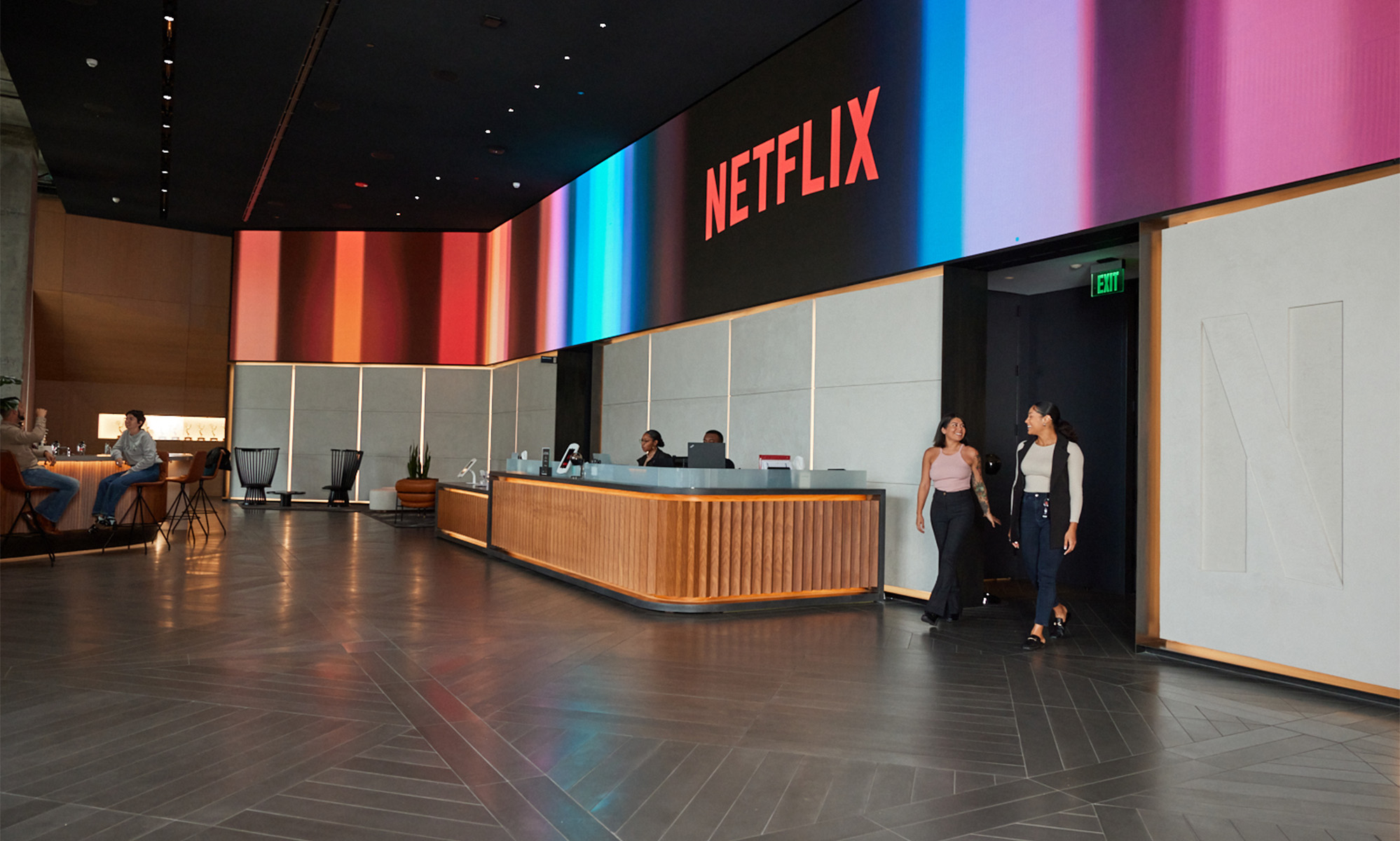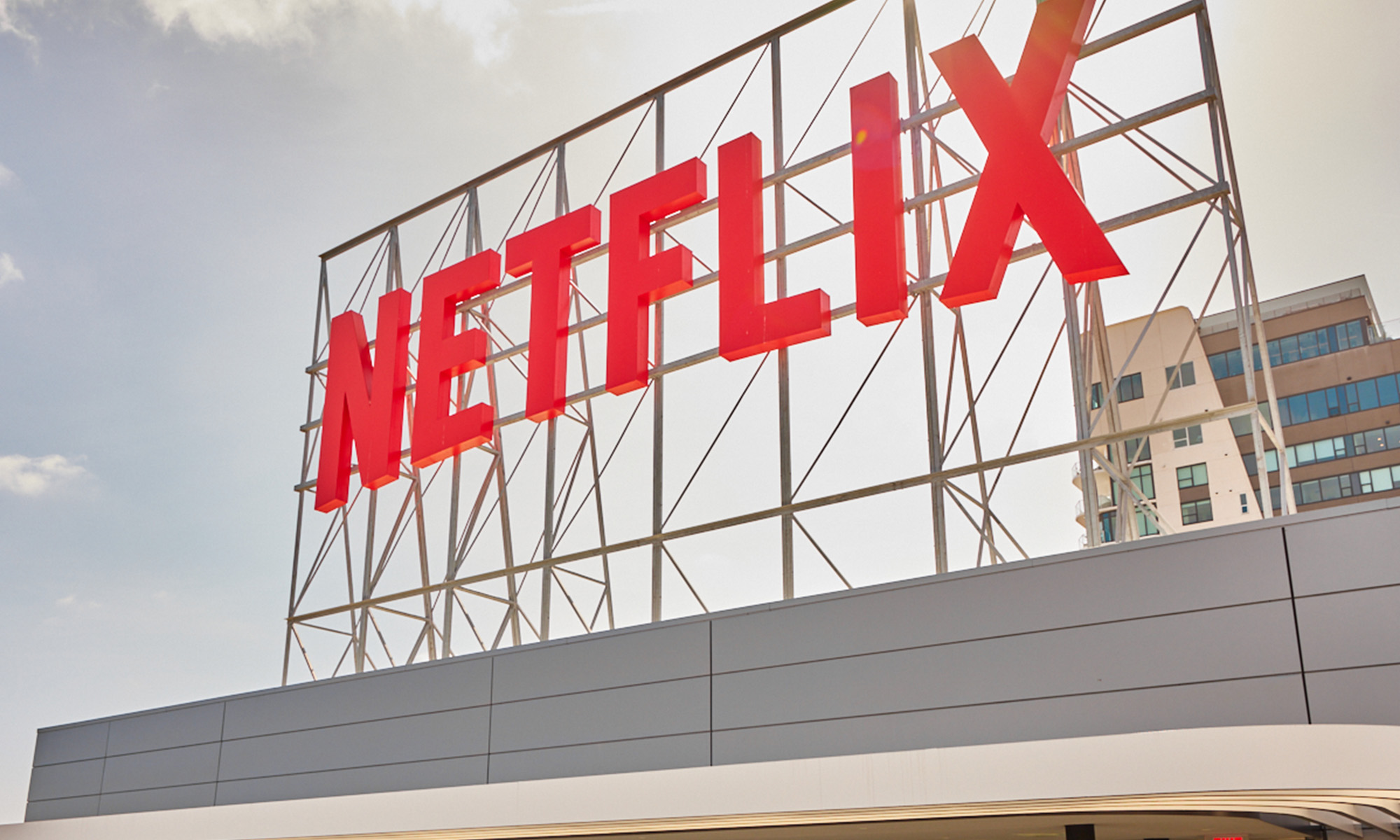Check out the latest Netflix earnings call transcript.
When Netflix (NFLX +3.17%) reported its fourth-quarter results, the company's subscriber growth continued its steady march upward. Global paying customers increased 26% year over year to more than 139 million. The addition of 8.84 million subscribers during the quarter far exceeded the 7.6 million Netflix had previously anticipated.
The streaming giant continues to confound skeptics by bypassing even its own ambitious forecasts. But what's driving the rapid subscriber additions?
Netflix has long known it's all about the content. Since its inception, the company has used the massive amount of data it has collected from viewers to determine how much to spend for its licensed programming, what genres to invest in, and what original programs would appeal to the widest audience. New research shows that this continues to be an unsung advantage for the streaming giant.

Outside Netflix headquarters in Los Gatos, California. Image source: Netflix.
Certified fresh
Analysis by independent news site Streaming Observer, which focuses on cord-cutting and streaming television, shows that Netflix has more movies that viewers want to watch than any other streaming service. The research used data from review aggregation site Rotten Tomatoes to compare the popularity of the movies found on the top four streaming platforms: Netflix, Amazon (AMZN +2.12%) Prime Video, Hulu, and AT&T's (T +0.04%) HBO Now. A movie is deemed "Certified Fresh" by Rotten Tomatoes if it maintains a rating of 75% or higher after accumulating 80 reviews for a wide release, or 40 reviews for a limited release.
Streaming Observer found that Netflix had 596 Certified Fresh movies in its catalog, more than Hulu, Amazon Prime, and HBO Now combined. Amazon was found to have the greatest selection of films with 17,461, followed by Netflix (3,839), Hulu (2,336), and HBO Now (815).
Netflix wins out when it comes to quality, however. Among the films available for streaming on Netflix, 15.5% were Certified Fresh, compared with 9.6% for Hulu, 4.7% for HBO Now, and just 1.3% for Amazon Prime.
While this is just one measure, it does illustrate the growing quality of Netflix's library of content, which is, in turn, attracting new subscribers.

Netflix has more "Certified Fresh" movies than its top three competitors combined. Chart used with permission. Chart source: Streaming Observer.
It's all about the data
One of the most underappreciated aspects of Netflix's business model continues to be the company's use of the information it gathers from viewers. This applies not only to the programs it streams, but also to how much the company will spend on a specific piece of licensed content.
That's not all. When Netflix was negotiating last year to poach award-winning producer, director, and writer Ryan Murphy from Twenty-First Century Fox (FOX +0.00%) (FOXA +0.00%), the company used data to help seal the deal. Murphy is best known for his hit shows Glee, American Horror Story, Nip/Tuck, 9-1-1, Feud, and American Crime Story: The People v. O.J. Simpson. Netflix shared a host of information with Murphy about how his shows performed with audiences on the platform, as well as what other programs his viewers found appealing.
This is just one of many examples of how Netflix has mined the data that it has from viewers going all the way back to its DVD-by-mail days. The birth of streaming more than a decade ago ratcheted up the level of granular data that Netflix has on its customers. The company knows what its viewers watch, for how long, when they pause, and if they quit watching a program.
One of the most famous examples of Netflix's use of data was in its decision to green-light House of Cards, its first hit original series. The company had statistics that showed a preference for the work of director David Fincher and actor Kevin Spacey, as well as an affinity among its subscribers for the original British version of House of Cards. The intersection of these three data points told Netflix the show would be a hit. Shortly after its release, the company revealed that the series had become its most-streamed program in dozens of countries around the world.
A hedge against the competition
Many Netflix detractors are quick to point out the growing competition in the streaming sector, and big players like Disney (DIS 1.99%) and Apple getting into the game. Disney already has a 30% stake in Hulu, which will soon grow to 60% once its acquisition of Fox is complete. Hulu's recent pricing decision seemed to be aimed directly at Netflix. Apple, meanwhile, is reportedly planning to debut a streaming service, which may launch as early as this year.
While both companies are worthy adversaries and neither can be discounted, Netflix has an ongoing advantage that the competition can't match -- a more than 20-year head start collecting data from its subscribers. This trove of information and Netflix's algorithms help the company make a host of better decisions. The biggest benefit of all this data is knowing precisely what programs viewers want to watch -- exactly why Netflix subscriber growth is soaring.








